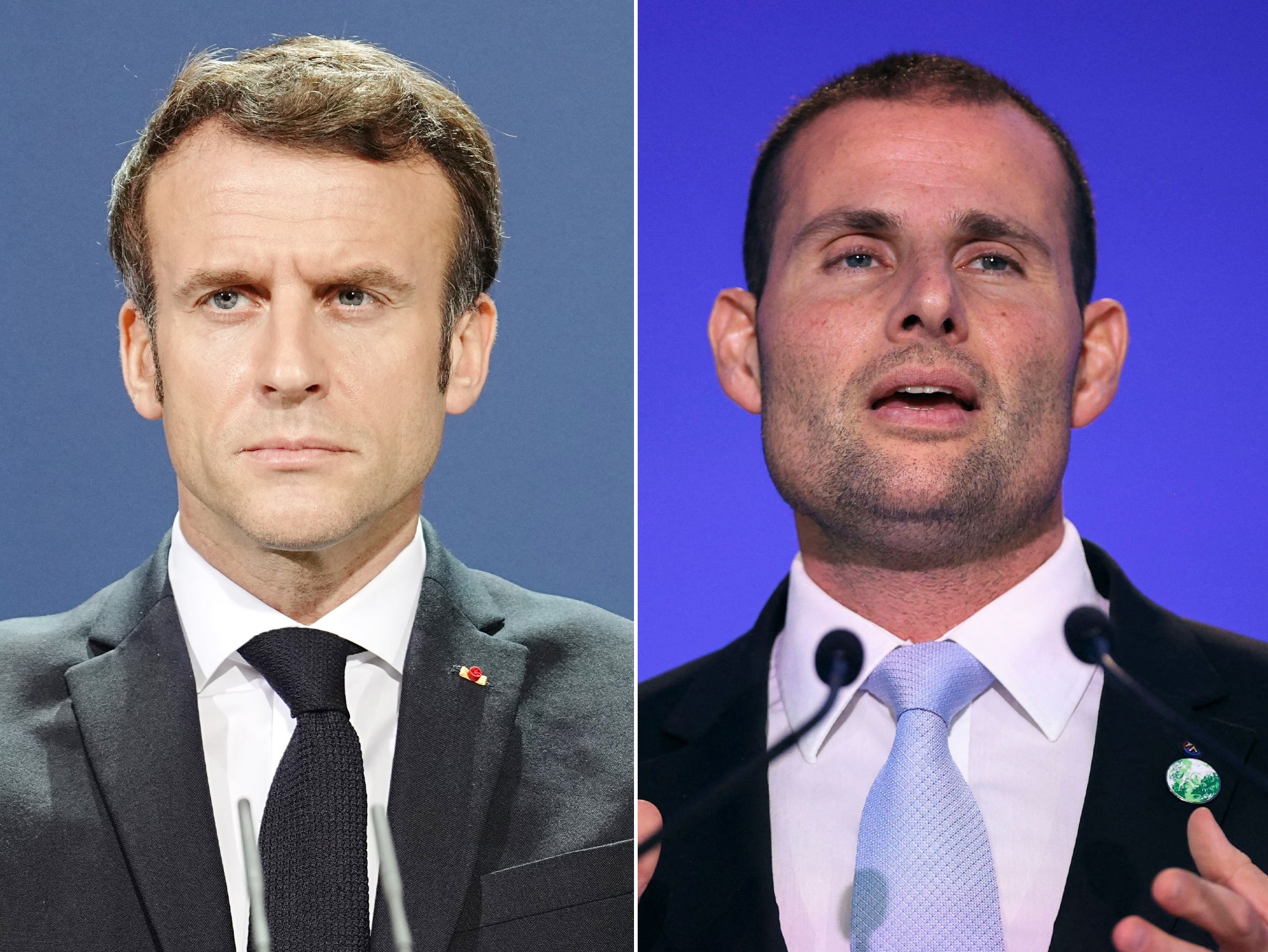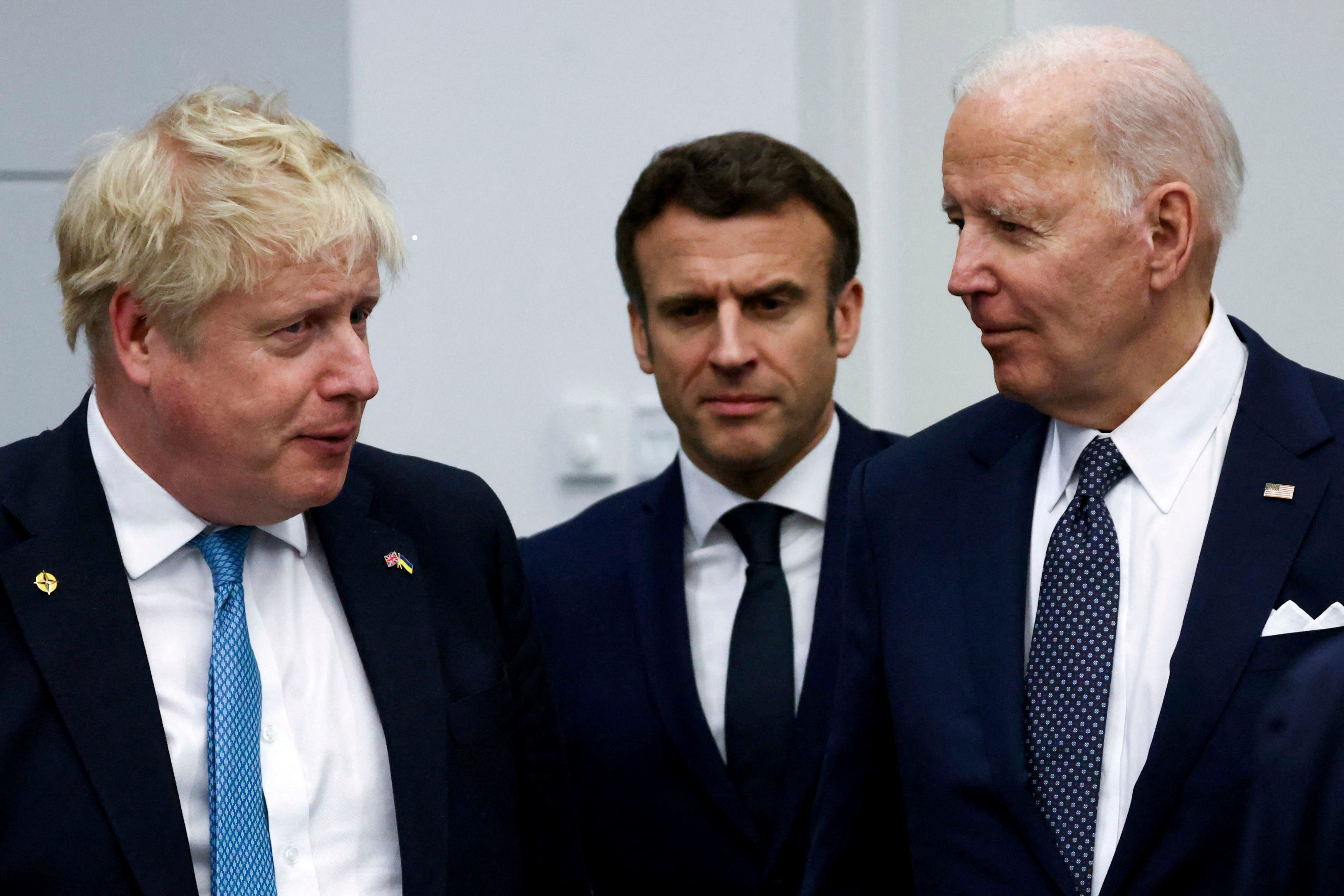The elections in France and Malta show how political stagnation is spreading
Reforming agendas have been put on hold in most places – including the UK, argues Chris Blackhurst


The votes from Malta, and from France. It sounds like the read-out from the Eurovision Song Contest.
Malta goes to the polls this weekend – the first EU election result since the Russians invaded Ukraine. In France, the presidential campaign is under way, with the first round of voting on 10 April.
In both places, there is an overriding sense of what the French term ennui. The incumbents are expected to win but they remain deeply unpopular.
Malta has been rocked by allegations of corruption in recent years, the Mediterranean island remaining in hock to the rouble and the oligarchs. Its “golden visa” scheme to woo rich foreigners with offers of EU citizenship, with Russians in the forefront, is the most entrenched in the bloc. Even now, the ties with Russia have not been completely renounced – oil from Russia is due to be delivered by tanker, while other nations cut their supplies.
Yet, the ruling Labour Party is likely to triumph. This too, despite the story that a villa of the prime minister, Robert Abela, was rented by Russians seeking a residential address to meet their visa requirements – an agreement that Abela said was signed before he became prime minister, although he could not specify when it was terminated.
In Malta, the state of political torpor can be summed up thus: the 2022 slogan of Labour is “Malta Together”; that of the rival National Party is “Together with you for Malta”.
In France, the climate is the same. Emmanuel Macron is widely regarded as having governed for the rich, not for ordinary people, and to have put strutting in Brussels and on the world stage ahead of his country. But his challengers also fail to excite. As with Abela, the president is firm favourite to be returned.
Part of the reason is Ukraine. The Russian onslaught transformed the mood: suddenly, those in power were galvanised and had something to gather around; and the public was resistant to upset and upheaval.
For Malta and France, read the UK, where Boris Johnson’s premiership has been saved, for now at least, by Vladimir Putin’s aggression
In France, Macron’s position was highlighted in Le Monde. Reported the paper, on Monday, conservative candidate Valérie Pécresse (Les Républicains) visited the Salon de l’Agriculture, the national farming fair which takes place every year in the south of Paris. “Communist candidate Fabien Roussel also wandered among cows, sheep, wines, cheeses, and other delicatessen producers. Emmanuel Macron for his part, spent his morning in a national security council meeting in the Elysée Palace’s war room and talked on the phone for 90 minutes with his Russian counterpart, Vladimir Putin.”
For Malta and France, read the UK, where Boris Johnson’s premiership has been saved, for now at least, by Putin’s aggression. Johnson scores badly in personal rating polls, but while the Ukrainian conflagration persists, it’s difficult to conceive of him being ousted.
Even before Russia attacked, the world was facing rising inflation. Now, everywhere, the cost of living, of consuming food and fuel, is heading skywards. Voters know this, too. They’re being promised some sweeteners but overall, they’re prepared to accept financial pain, they’re aware there is a price to be paid in the form of increased borrowing, raised interest rates and higher taxes.
Reforming agendas have been put on hold. In most places, as the Maltese slogans highlight, there is little to choose between the parties. If Labour were to succeed in the UK today, what would they do, honestly, that is different from the Tories? They would talk a good game, of course they would, but, as has been the case for several years, their room for manoeuvre is restricted. Thanks to Russia, it’s just got a whole lot tighter.

Where does this leave businesses? Stuck. Having to accept that not much is going to alter any time soon, delaying spending and investment plans.
Covid has been replaced by Ukraine in the minds of politicians; they have the perfect excuse to not drive through change, to not make awkward calls, to not offend some sections of society as inevitably pushing any reform does. In the UK that means for commerce, the likes of long-promised purges of red tape, simplification of planning laws, overhaul of business rates are not going to occur any time soon. We’ve fought one war, Covid-19, goes the reasoning; now, we’re fighting another, Russia’s bombing of Ukraine.
The UK consumer confidence index, a measure of how people view their personal finances and economic prospects, dropped 5 points to minus 31 in March, the fourth consecutive fall and the lowest reading in 17 months, according to research company GfK.
The Office for National Statistics is reporting consumers are cutting back on non-essential items. Another survey, by financial company S&P Global of purchasing managers, reveals business sentiment is at a 17-month low.
Chris Williamson, chief business economist at S&P Global, said the research indicated “potentially sharply slower growth in the coming months, accompanied by a further acceleration of inflation and a worsening cost of living crisis. [This] paints an unwelcome picture of ‘stagflation’ for the economy in the months ahead.”
Stagflation is defined by economists as a period of high inflation accompanied by slow growth and high unemployment. As the Malta and France elections highlight, it is joined by political stagnation. And not just in those countries, but elsewhere. In the UK, too.




Join our commenting forum
Join thought-provoking conversations, follow other Independent readers and see their replies
Comments